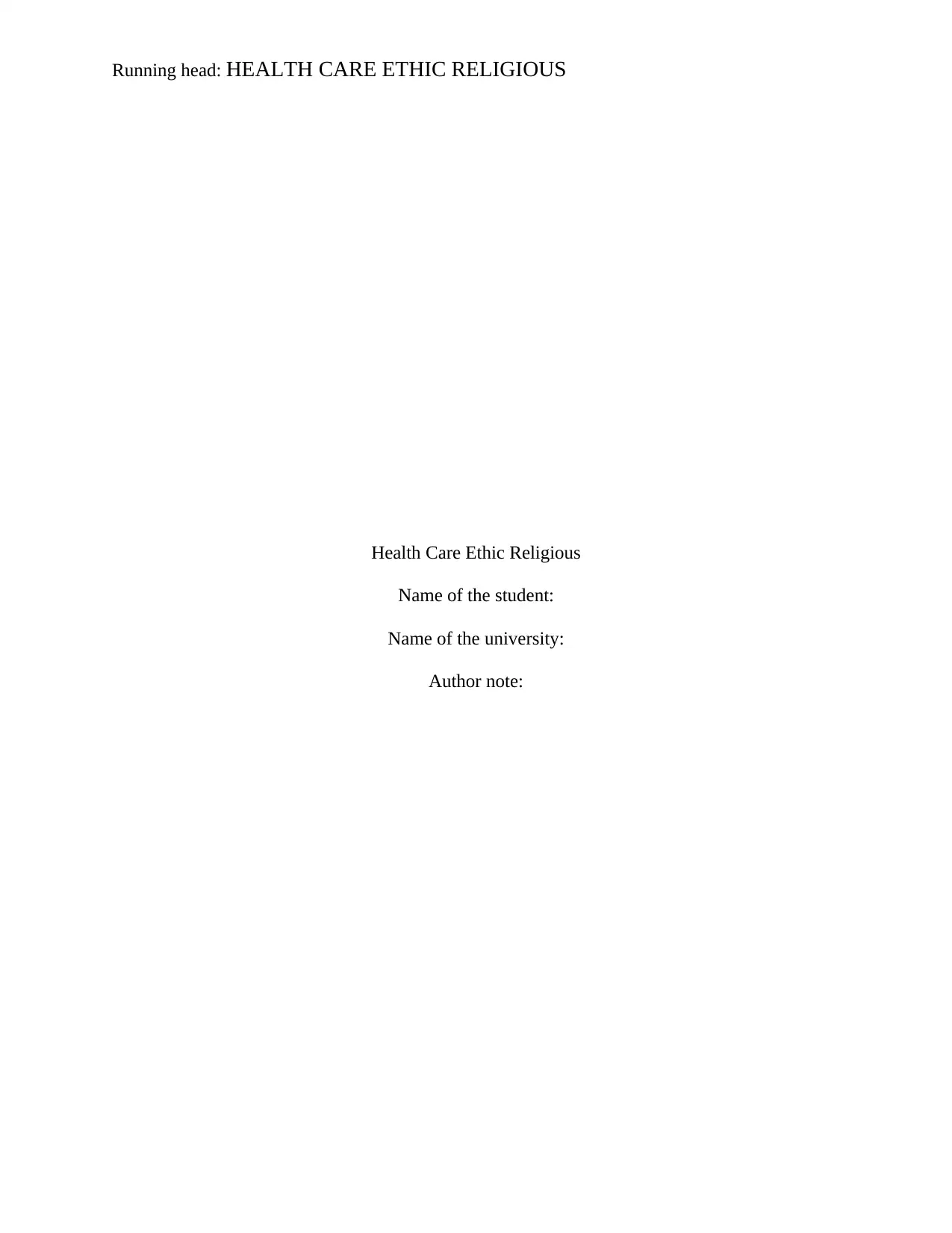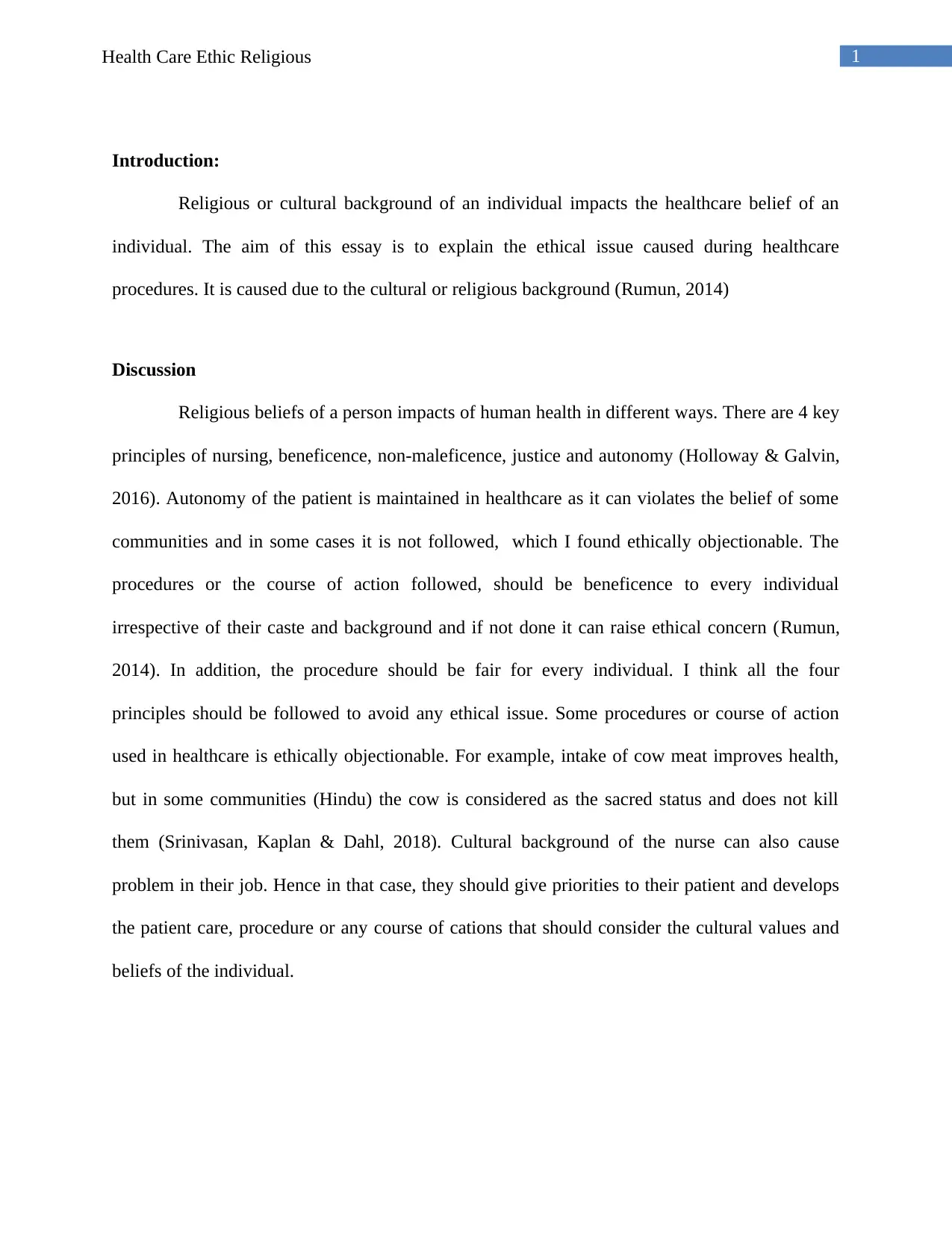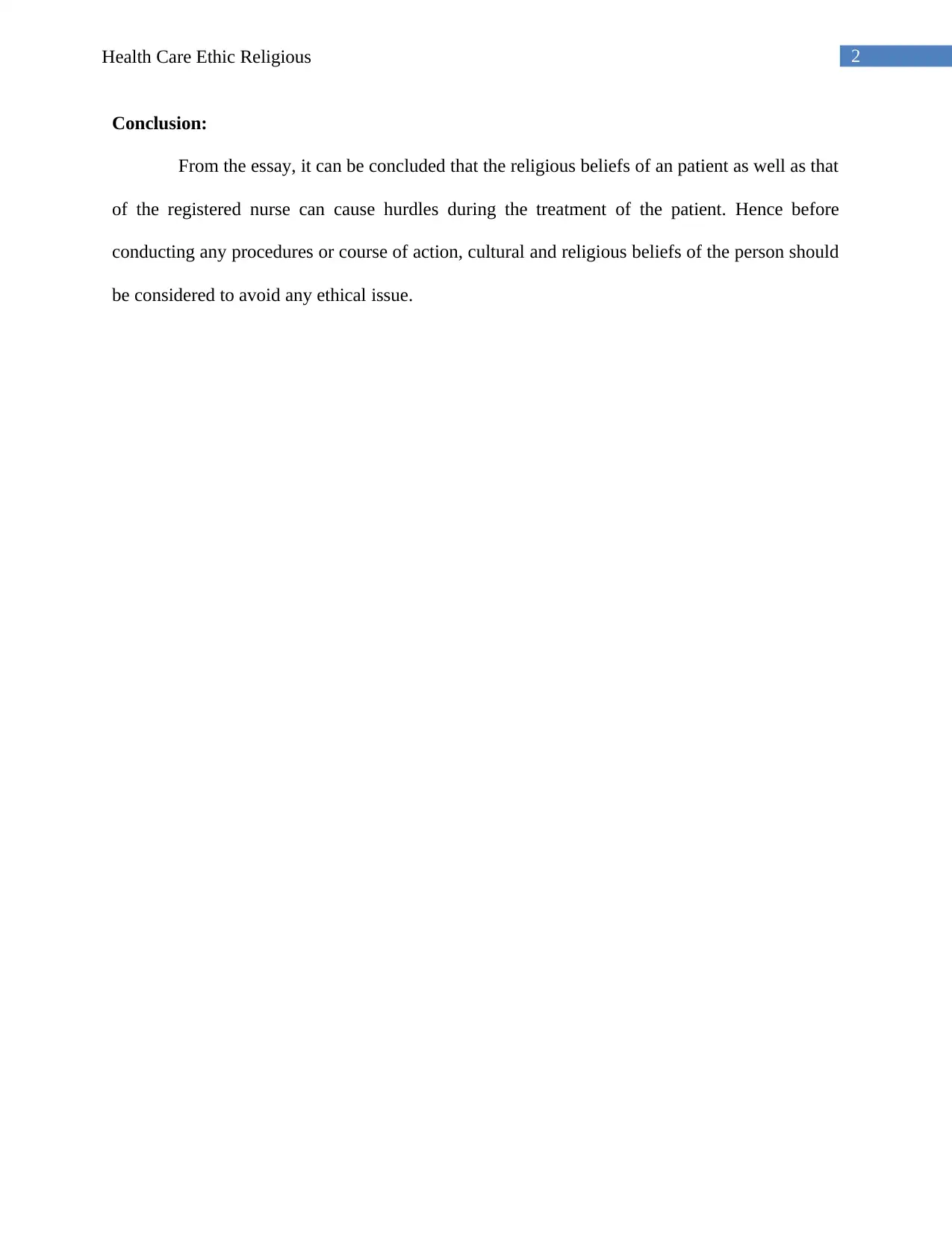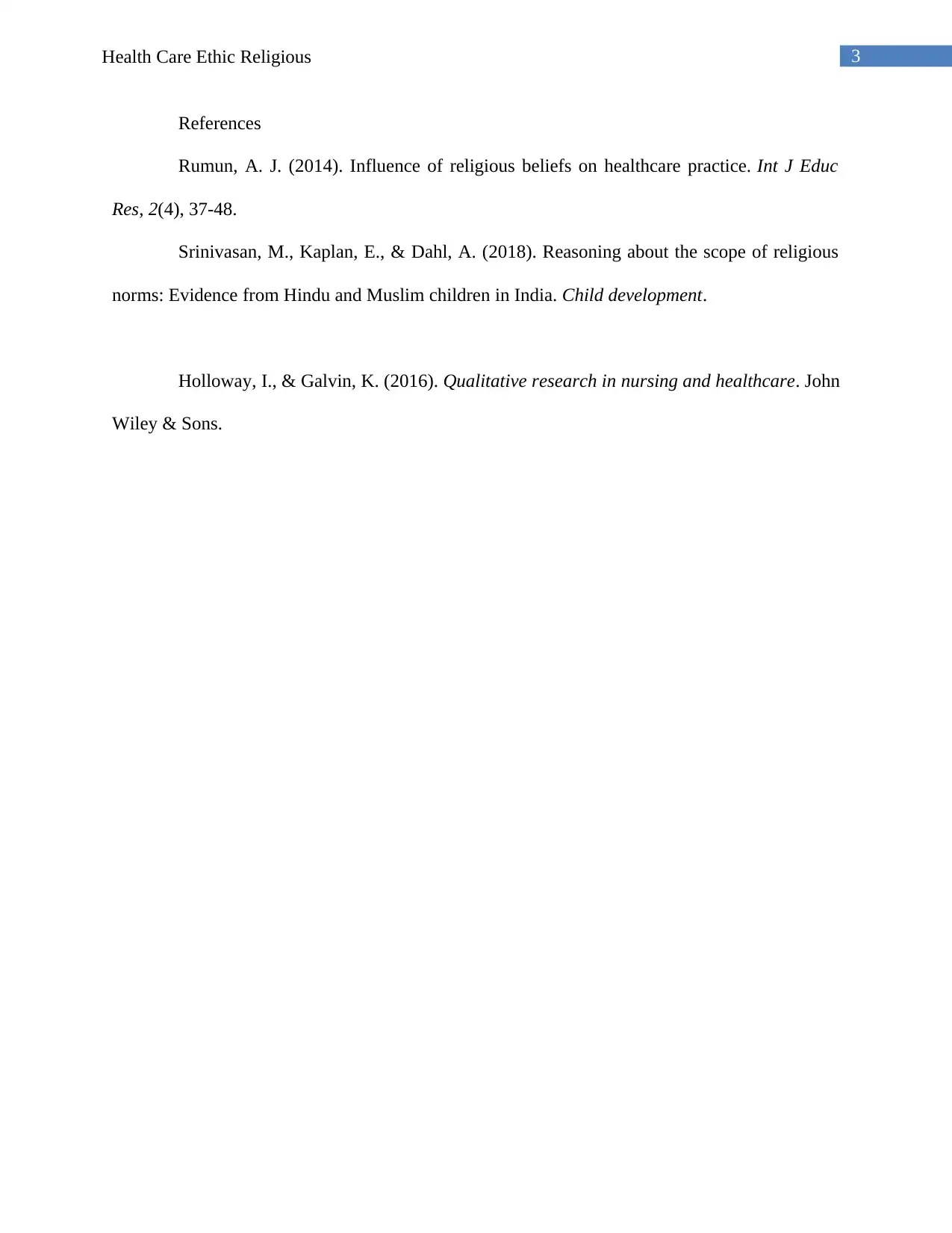Healthcare Ethics: Impact of Religious Beliefs on Healthcare Practices
VerifiedAdded on 2023/01/19
|4
|473
|35
Essay
AI Summary
This essay explores the influence of religious beliefs on healthcare practices, examining how these beliefs can impact patient care and create ethical dilemmas. The author discusses the four key principles of nursing: beneficence, non-maleficence, justice, and autonomy, highlighting that patient autonomy is often challenged by religious beliefs. The essay provides an example of how dietary restrictions based on religious beliefs can influence healthcare decisions. The author concludes that cultural and religious beliefs of both the patient and the healthcare provider should be considered to avoid ethical issues. The essay references several sources to support its arguments, including studies on the impact of religious beliefs on healthcare practices, the role of cultural background in patient care and the importance of considering cultural values and beliefs in healthcare settings.
1 out of 4











![[object Object]](/_next/static/media/star-bottom.7253800d.svg)